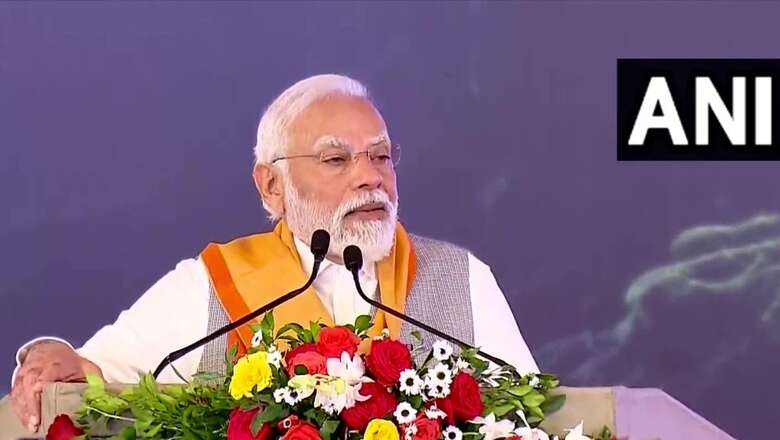
views
Chinese state media Global Times praised India’s significant strides in the spheres of economic, social governance and foreign policies saying New Delhi has become more strategically confident and proactive in creating and developing a “Bharat narrative” under Prime Minister Narendra Modi.
An article published in Global Times by Zhang Jiadong, the director of the Center for South Asian Studies at Fudan University, Shanghai, highlighted India’s exceptional achievements over the past four years acknowledging New Delhi’s robust economic growth, improvements in urban governance, and a shift in viewpoint towards international relations, especially with China.
“For example, when discussing the trade imbalance between China and India, Indian representatives earlier used to primarily focus on China’s measures to reduce the trade imbalance. But now they are placing more emphasis on India’s export potential,” the article said.
“In the political and cultural spheres, India has moved from emphasising its democratic consensus with the West to highlighting the ‘Indian feature’ of democratic politics. Currently, there is even more emphasis on the Indian origins of democratic politics,” the article published on January 2 further stated.
The author further talked about India’s ambition to escape its colonial shadow and act as a “world mentor”, bolstering ties with major global powers such as the US, Japan, and Russia while displaying a nuanced stance in the Russia-Ukraine conflict.
“Since Prime Minister Narendra Modi assumed power, he has advocated for a multi-alignment strategy, promoting India’s relations with the US, Japan, Russia and other countries and regional organisations,” Zhang said in the article.
“India has always considered itself a world power. However, it has only been less than 10 years since India shifted from multi-balancing to multi-alignment, and now it is rapidly transforming toward a strategy of becoming a pole in the multipolar world. The speed of such changes is rarely seen in the history of international relations,” he said.
The author concluded that it appears that a transformed and assertive India has become a new geopolitical factor.
(With PTI inputs)













Comments
0 comment